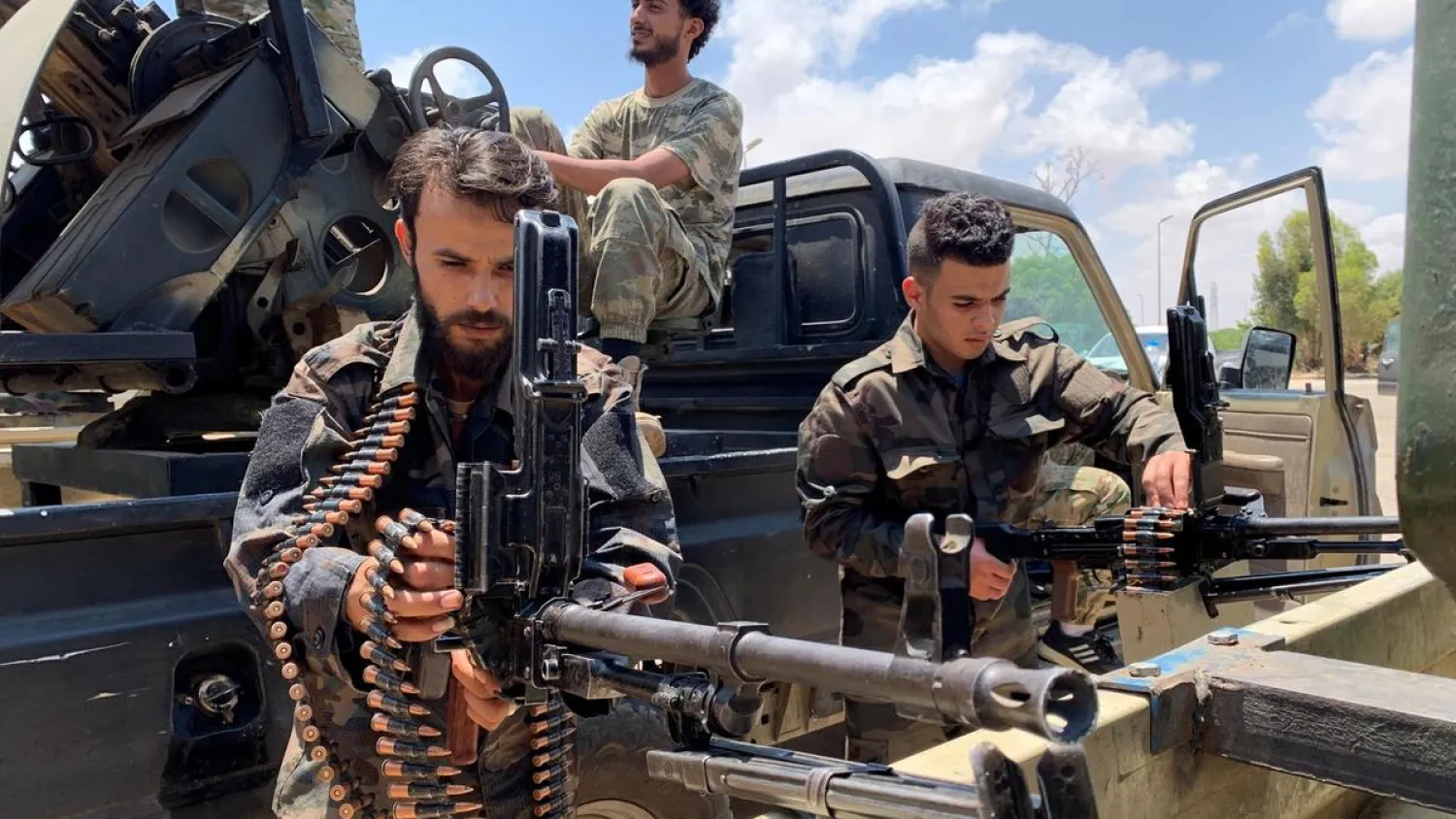The Tripoli-based Government of National Accord (GNA) has been reinforcing its troops around Sirte ahead of waging a battle to capture the strategic coastal city. This has given way to speculation over when the battle will begin, significantly after Turkish Foreign Minister Mevlut Cavusoglu claimed that any deal incorporating the conflict’s existing frontlines “would not benefit” the Ankara-backed GNA.
A prominent official form the Libyan National Army (LNA) told Asharq Al-Awsat that the response to such statements will take place on the battlefield.
He vowed that “GNA militias, Turkish invaders and Ankara-aligned mercenaries” will be dealt a “crushing defeat”, declaring that the LNA forces were ready to repel any attack.
Meanwhile, GNA commander in charge of the Sirte-Jufra Joint Operations Unit Ibrahim Baytulmal announced that he held an “extraordinary” meeting with various field commanders to discuss the developments in the region between Sirte and al-Jufra.
They agreed to increase reinforcements and improve defenses in the hopes of bringing out an imminent victory, he said.
The GNA forces had announced the establishment of a “joint force” comprised of units that had taken part in the war in Tripoli in order to secure the entrances of the western region and control the movement of vehicles and flow of weapons. The force will include some 1,500 fighters and be tasked with protecting western Libya.
Separately, spokesman for the United States Africa Command (AFRICOM) declined to comment on the possibility of the eruption of a military confrontation in Libya.
He told Asharq Al-Awsat that there can be no permanent military solution to the conflict, but rather peace should be achieved through the political process.
Meanwhile, the US Embassy in Libya strongly condemned “foreign-backed efforts against Libya’s economic and financial sectors” that have “impeded progress and heightened the risk of confrontation.”
“Incursions by Wagner mercenaries against National Oil Corporation (NOC) facilities, as well as mixed messages conceived in foreign capitals and conveyed by the LNA on July 11, hurt all Libyans striving for a secure and prosperous future,” it added.
“Illegal obstruction of the long-overdue audit of the banking sector further undermines the desire of all Libyans for economic transparency. These disappointing actions will not deter the Embassy from its commitment to work with responsible Libyan institutions, such as the GNA and the House of Representatives, to protect Libya’s sovereignty, achieve a lasting ceasefire, and support a Libyan consensus on the transparent management of oil and gas revenues,” it continued.
“The door remains open for all who lay down weapons, reject foreign manipulation, and come together in peaceful dialogue to be a part of the solution; however, those who undermine Libya’s economy and cling to military escalation will face isolation and risk of sanctions. We are confident the Libyan people see clearly who is prepared to help Libya move forward and who instead has chosen irrelevance,” it said.
The Foreign Ministry of the east-based interim government condemned the Embassy statement, saying it was “unfortunate that the unconstitutional and unrecognized GNA” has monopolized the national economy and the Libyan people’s savings deposited at the central bank in Tripoli. It accused the GNA of using these savings “to bring in foreign terrorist mercenaries from Syria through the Turkish government and for all the world to see in flagrant defiance of international resolutions.”
It called on the US Embassy to work with different Libyan parties, especially the LNA, which derives its legitimacy from the Libyan people and the elected parliament.









